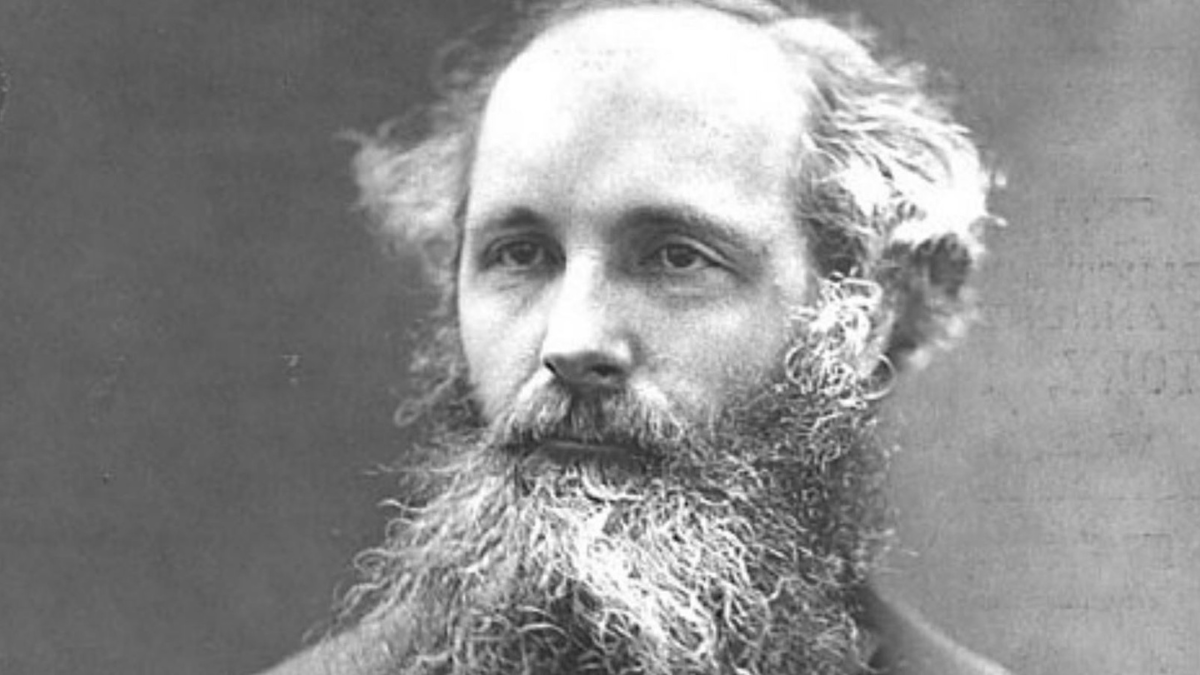

James Clerk Maxwell: Cultivating the Mind of Christ
To be Christian, especially in this confusing cultural moment, requires the intentional cultivation of our minds. An exemplary model of someone who took this calling seriously is James Clerk Maxwell.
01/4/23
John Stonestreet and Glenn Sunshine

To be Christian, especially in this confusing cultural moment, requires the intentional cultivation of our minds. An exemplary model of someone who took this calling seriously is James Clerk Maxwell.
The only two physicists most people could name, if at all, are Albert Einstein and Isaac Newton. However, they should know James Clerk Maxwell, whose work was foundational for many of the most important discoveries of 20th-century physics.
Born in Edinburgh, Scotland, in 1831, Maxwell entered the University of Edinburgh at age 16. When he didn’t find his studies all that demanding, he dedicated his spare time to self-constructed chemical, electric, and magnetic devices, especially with polarized prisms and gelatins. This work led to two scientific papers which he completed at age 18.
In 1850, Maxwell went to the University of Cambridge. While there, he underwent an evangelical conversion. He remained an evangelical Presbyterian for the rest of his life, eventually becoming an elder in the Church of Scotland.
He graduated from Trinity College in 1854 as one of the top two mathematicians. Although he was made a Fellow of Trinity in 1855, he instead accepted a professorship at Marischal College in Aberdeen. While there, he won the Adams Prize from King’s College Cambridge for demonstrating that Saturn’s rings could be neither solids nor liquids, but rather made of smaller particles that orbited Saturn independently. In the 1980s the spacecraft Voyager confirmed the theory in a flyby of Saturn. At the time he wrote the paper, it was considered the finest example of an application of mathematics to physics in history.
In 1860, Maxwell took a position at King’s College London, before moving on to Cambridge in 1871. Soon, Maxwell’s work changed the field of physics. For example, he showed that light was a form of electromagnetic radiation and worked out key concepts describing electromagnetic behavior. That work was later simplified into four partial differential equations that paved the way for Einstein’s theory of special relativity. He also produced the first light-fast color photograph (in 1861), and he proposed a system for defining physical quantities, which today is known as dimensional analysis.
Maxwell’s faith was very important to his understanding of science and put him at odds with most of his contemporaries. The dominant philosophy of the day among scientists was positivism, which taught that the only foundation for knowledge was empirical observation and logical and mathematical analyses of those observations. This means that intuition, introspection, revelation, and tradition are not valid ways of finding truth. Therefore, the authority of the Bible must be rejected, along with claims to miracles and divine interventions of any sort.
Maxwell, however, rejected positivism as both reductionistic and presumptuous. He believed firmly in the Scriptures and had a decidedly mystical streak to his Christian life that he rarely discussed. To Maxwell, science was a profoundly religious endeavor. Among the daily prayers he repeated was this one:
Teach us to study the work of Thy hands that we may subdue the earth to our uses, and strengthen our reason for Thy service; and so rescue Thy blessed Word, that we may believe on Him whom Thou hast sent to give us the knowledge of salvation and the remission of our sins.
Maxwell understood science as an expression of the cultural mandate from Genesis 1 and its connection to the Gospel. In 1875, he said,
I think that men of science as well as other men need to learn from Christ, and I think that Christians whose minds are scientific are bound to study science that this view of the glory of God may be as extensive as their being is capable of.
Maxwell died at age 48 of stomach cancer. Despite a short life, physicists classify his work along with Einstein and Newton. In advancing our knowledge about God’s world, Maxwell understood that he was performing the work of the kingdom of Heaven, with an expectation that it would lead people to glorify God and fulfill His purposes for the world.
We should all be as intentional as Christians to commit and cultivate our minds in obedience to Christ. For a gift of any amount this month, I’d like to send you a very helpful and concise book, What Does It Mean to Be a Thoughtful Christian? by scholar David Dockery. We’ve also developed a video series on the Christian mind, with teachers such as Alisa Childers and Dr. Kevin Vanhoozer. To learn more, please visit colsoncenter.org/January.
Today’s Breakpoint was co-authored by Dr. Glenn Sunshine. For more resources to live like a Christian in this cultural moment, go to colsoncenter.org.
Topics
Christian figure
Christian History
historical Christian figure
James Clerk Maxwell
physics
scientist
Have a Follow-up Question?
Up
Next

Related Content

© Copyright 2020, All Rights Reserved.













